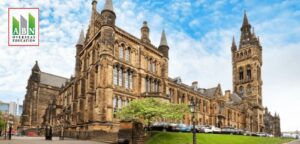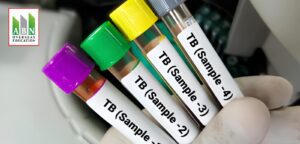Ireland has quickly become one of the best places for international students to go to school and then stay and make a life in Europe. Ireland is a great place for people who want to stay there long-term after graduation since its economy is booming, its culture is friendly, and it’s easy to go from a student visa to permanent residency (PR).
We at ABN Education know how important it is for international students to make this change go smoothly. This is why we made this 2025 Ultimate Guide on how to get PR in Ireland after study. It gives you a step-by-step plan to help you achieve your Stamp 4 (PR) with confidence.
Why Choose Ireland for PR
Ireland is a great place for overseas students to go to school, and for good reason. The tech industry is booming, the people are kind, and the cost of living is expensive. All of these things make it a great area to study and live. For many students, the next step after graduation is to apply for permanent residency (PR).
With help from abneducation, you’ll know exactly how to get PR in Ireland after you finish your studies and make your time there a permanent part of your life.
What is Permanent Residency (PR) in Ireland?
Stamp 4, often known as permanent residency, lets people from outside the EU/EEA live and work in Ireland without needing a work permit. It’s a long-term residency license given after living legally in a country for a certain amount of time, usually five years.
PR is more stable and flexible than temporary visas. It gives you a link to public services, helps you improve your profession, and makes you eligible for Irish citizenship in the future.
Benefits of Getting PR in Ireland
✅ Live and work in Ireland without restrictions
✅ Access to healthcare and education
✅ Eligible for long-term loans and mortgages
✅ No need for an employment permit
✅ Pathway to Irish citizenship
✅ Include dependents under your PR
PR is the way to go if you want to work in Dublin’s IT scene or live a quiet life in Galway. With abneducation, we help you grasp all the benefits and requirements so you know exactly how to get PR in Ireland after studies.
Who is Eligible for PR in Ireland After Study?
To be eligible for Ireland PR after studying in Ireland, you must meet certain conditions based on your visa history and employment.
Third-Level Graduate Scheme
After graduating from an Irish higher education institution, international students may apply for the Third-Level Graduate Scheme (Stamp 1G). This allows you to stay in Ireland for up to 24 months to find suitable employment.
- Bachelor’s Degree: 12 months (can be extended once)
- Master’s/PhD: Up to 24 months (non-renewable)
Stamp Categories for International Graduates
- Stamp 2: While studying
- Stamp 1G: Post-study job search
- Stamp 1: With general or critical skills employment permit
- Stamp 4: Long-term residence (after 5 years)
Step-by-Step Process to Get PR in Ireland
Step 1: Graduate and Secure a Job
Once you complete your degree, apply for the Stamp 1G. Use this period to find a full-time job. Aim for a role on the Critical Skills Occupations List to fast-track your residency.
Step 2: Apply for Stamp 1 or 1G
Once employed, apply for a Stamp 1 through a general or critical skills permit. You must hold a work permit for a minimum of 5 years to qualify for long-term residency.
Note: Those with a Critical Skills Employment Permit may qualify for Stamp 4 in just 2 years.
Step 3: Work and Build Residency Time
To apply for PR, you must legally reside in Ireland for 60 months (5 years). Time on Stamp 2 doesn’t count—but Stamp 1, 1G, and 4 do.
Step 4: Apply for Stamp 4 (Long-Term Residency)
After 5 years of residence, submit your Long-Term Residency application to the Irish Naturalisation and Immigration Service (INIS).
Abneducation can support you every step of the way in understanding how to get PR in Ireland after study, making sure you meet all residency and employment requirements.
Key Requirements for PR Application
To be eligible for Stamp 4 based on long-term residency:
- 5 years of legal residence on eligible stamps
- No major gaps in residency
- Stable employment and income
- No criminal record
- Clean immigration history
- Proof of integration into Irish society
Documents Required for PR in Ireland
To apply for Permanent Residency (Stamp 4) in Ireland, you’ll need:
- Passport: Copies of all pages from your current and previous passports
- GNIB/IRP Cards: All cards issued in the past five years
- Employment Letters: From current and past employers
- P60S and Payslips: Last five years of income and taxes
- Bank Statements: Last 6–12 months showing income stability
- Proof of Address: Utility bills, tenancy agreements, etc.
- Cover Letter: Personal statement showing integration
Abneducation can assist you in putting together and checking your papers to make sure your application fits all INIS requirements.
Timeline for Getting Irish PR After Study
- Study in Ireland: 1–4 years (Bachelor’s, Master’s, or PhD)
- Stamp 1G: 1–2 years (depending on degree level)
- Stamp 1: 2–5 years on an employment permit
- Stamp 4: Apply after 5 years of qualifying stamps (1, 1G, 4)
Note: Time spent on Stamp 2 (student visa) does not count toward PR eligibility.
Common Mistakes to Avoid During PR Application
❌ Relying on Stamp 2 time (not counted)
❌ Gaps in residency history
❌ Not renewing GNIB/IRP cards on time
❌ Poor documentation
❌ Not maintaining steady employment
❌ Overstaying visa limits
Let abneducation help you avoid these errors by guiding you through each step.
PR vs Irish Citizenship: Key Differences
Here’s how Permanent Residency compares to Irish Citizenship:
Duration:
- PR: Indefinite (renewable)
- Citizenship: Lifetime (no renewal needed)
Passport:
- PR: Not granted
- Citizenship: Irish passport granted
Voting Rights:
- PR: Limited (local elections only)
- Citizenship: Full voting rights, including national elections
Application Time:
- PR: After 5 years of legal stay
- Citizenship: After 5 years (or just 1 year if married to an Irish citizen)
Dual Nationality:
- PR: Not affected
- Citizenship: Ireland allows dual citizenship
How to Maintain Your PR Status
- Renew GNIB/IRP card on time
- Continue living and working in Ireland
- Avoid long absences (180+ days)
- Comply with Irish tax laws
- Don’t switch to short-term visas
Expert Tips for a Smooth PR Journey
✔ Keep a residency diary with entry/exit dates
✔ Store all documents safely
✔ Consider a professional consultant
✔ Regularly check INIS updates
✔ Always renew immigration stamps on time
ABN Education is here to assist you at each stage, whether you’re just graduating or preparing your PR documents.
Conclusion
How to get PR in Ireland after study isn’t just a question; it’s a process. And with the correct information, planning, and help from abneducation, that journey gets a lot easier. Pay attention to following the law, growing your profession, and sending in your applications on time. If you prepare ahead and stick to your plans, you’ll soon be able to enjoy the benefits of permanent residency and maybe even Irish citizenship one day.





















